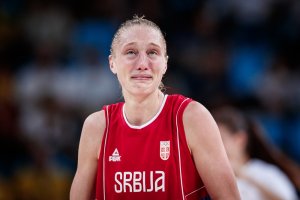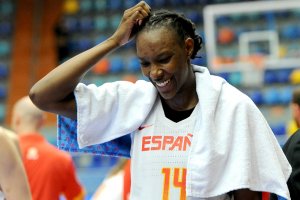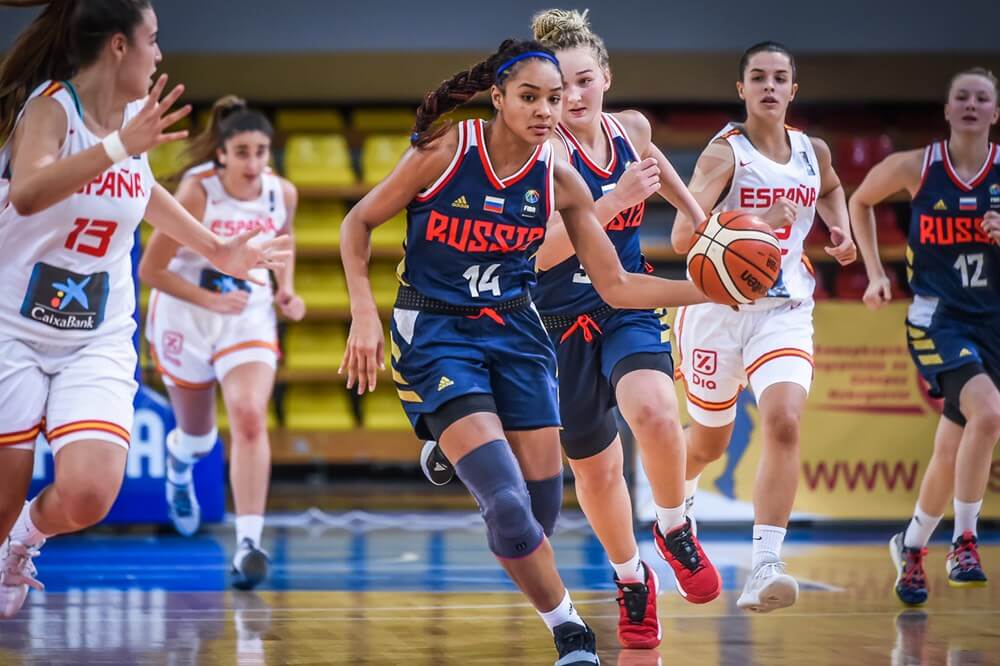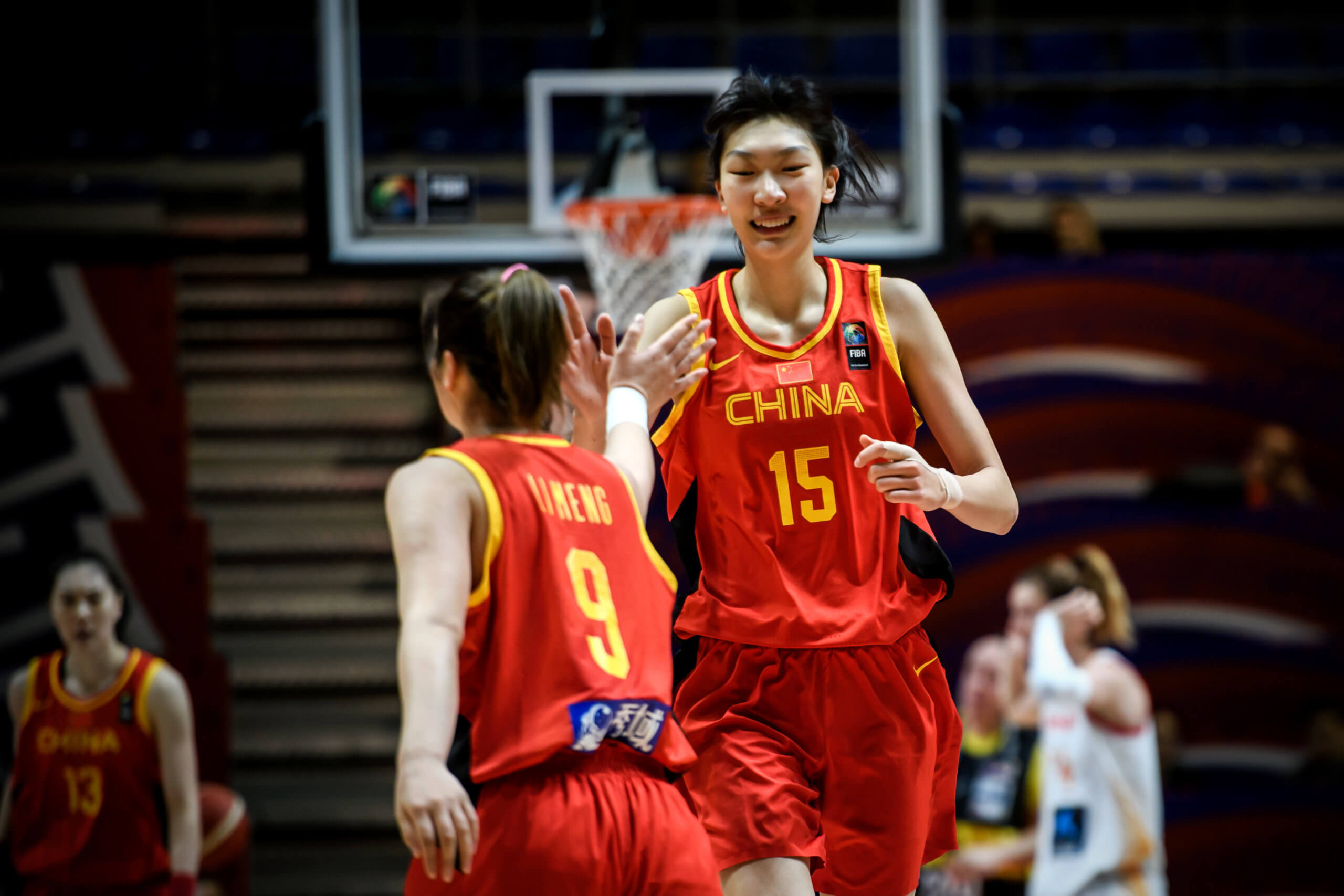Located at the best FIBA Continental tournament in the form of EuroBasket Women 2017, Blue Star Media has got it covered via myself and my Basketmedia365 colleague Pierre Ploszajski.
As the authors of the official Media Guide for the competition, we’re bringing you exclusive insight throughout the tournament [official website here] with regular questions and opinions.
Our fourth question of this mini-series is: Is this the death of the naturalized player?
PN: It is far too soon to probably say for sure, but EuroBasket Women 2017 has certainly given the entire concept of a naturalized player a big shake-up. The cold hard facts are astonishing really.
– Of the 8 teams who didn’t make the Quarter-Finals, 7 of them had naturalized players.
– Of the 8 teams who have made it to the Quarter-Finals, 6 of them don’t have any naturalized players.
I think that the positive of what has happened is that in broad terms, this now demands Federations stop jumping to what they think is a solution, without asking themselves what question they think they are actually answering.
There is no doubt that saying this heralds the death of the naturalized player is probably too strong and too premature. Spain could win it with Sancho Lyttle, or Turkey could go deeper with Quanitra Hollingsworth. Although ironically, as bigger Federations, they shouldn’t need to be so reliant on a foreign player.
I think this tournament poses the question more strongly than ever about the quality of naturalized players and dare I say it – whether they are truly dedicated to the cause as they should be. Only they can, as individuals, look into the mirror and answer that.
Not least because the blunt truth is that with the financial gains in terms of a European passport opening doors [in most cases] it remains the overwhelming reason for playing.
And, telling the media off the record that they don’t want to play or are merely fulfilling obligations is unacceptable. If you don’t want to play then DON’T think it is fine just to receive a passport which earns you tens of thousands more dollars and think you don’t have to perform.

And in the interest of balance, one naturalized player who wasn’t here at this tournament is Danielle Page. A hard-working forward who learned the anthem of her adopted country and was an integral part of taking Serbia to unprecedented heights in recent years, she showed what can be done when players do truly engage.
(PP) The idea here is not to argue on whether teams should or should not be using naturalized players, since it is allowed by the governing authorities of the game then it’s not relevant to address this part of the question. Let’s accept the fact for now. What we can discuss though is the importance and relevance of such a player on any teams’ rosters and how Federations pick them, especially after the outcome of group phase during this present EuroBasketWomen 2017, with in mind the simple statistical facts Paul just reminded us of.
With the trend starting way back in 2007 (Engin for Turkey) and 2008 (Hammon for Russia) and accelerating during the 2009-2017 time frame (Lyttle, Sanders, Hollingsworth, Nevlin, Quigley, Hardling, Vandersloot, Robinson, Murphy, Bentley etc.), the use of a Naturalized Player has been seen as the guarantee / a necessity for a good (better) results regardless of team alchemy / chemistry.
What we know now is that such a player can only be beneficial to a team if there is a real program developing young players, strong national leagues behind and preferably the import proving to be a longtime member of the national league of the country he represents (Vaughn, Evans, Prince) as opposed to pure import (Moss, Bentley) .
Too many of the national Federations forgot the importance of building a strong team through their own programs and believed there could be a faster way to get results. But they forgot there’s no short way to become an elite level National Team. Buying an import player can’t prevent from putting the hard work in youth program and giving responsibilities to local national players!

Out of the 9 teams with Naturalized Players only 2 advanced: Turkey and Spain, both countries being known and recognized for their youth programs. Maybe now, Federations of eliminated countries will reconsider their approach and even start believing that building a real time rather than a succession of individualities can provide better results in the end, as Greece, Latvia, Slovak Republic, Italy, Belgium and France just proved. I wouldn’t put the blame on the foreign players themselves.
As far as I know they’re just professionals with a limited career length and it’s totally understandable from their perspective to embrace the situation and try to maximize their benefits within the FIBA sets of rules. As sports became a global market like any other, the ethical values driving basketball are being forgotten but reality just reminded everyone that in a team sport, basic principle and hard work ethic do better than importing!
Maybe a rule where you could only use a Naturalized player at Senior Level if all of your Youth Teams are in Division A and ranked within Top 10 could be considered. But before such a rule exists, maybe the National Federations will anticipate it and come with their own solutions to this issue. Let’s hope so…
EuroBasket Women 2017 – Naturalized Player Power Rankings
*By order of impact/productivity
ESP – Sancho Lyttle
TUR – Quanitra Hollingsworth
– – – – teams below eliminated – – – –
HUN – Courtney Vandersloot
MNE – Angelica Robinson
SLO – Shante Evans
CZE – Kia Vaughn
RUS – Epiphanny Prince
BLR – Alex Bentley
UKR – D’Andra Moss
Keep it locked to basketmedia365
And……
 pierrepiotr_ across all things #EuroBasketWomen2017
pierrepiotr_ across all things #EuroBasketWomen2017
Paul Nilsen lives and breathes women’s hoops. He’s is a freelance writer working for the sport’s world governing body FIBA where he pens a weekly ‘Women’s Basketball Worldwide Column’ - as well as providing daily content on major club competitions, international tournaments and the women’s youth game. He has an extensive network of contacts across the globe, including an array of elite play-callers and players. Also a qualified coach and referee, he is a big supporter of Blue Star Media and joined as a blogger during the fall of 2016.




